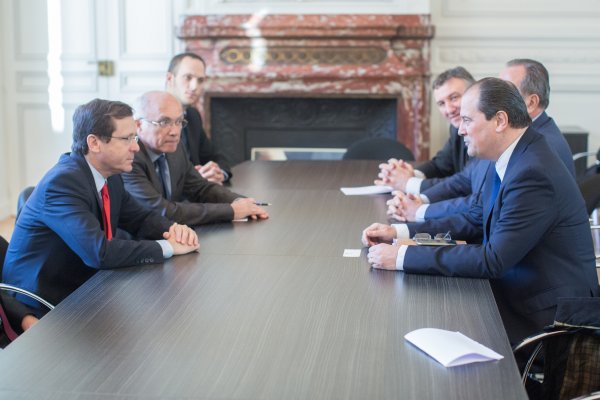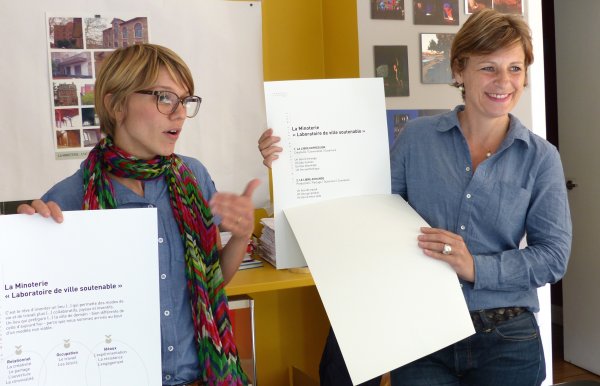Business Culture: Decision Making
Cultural Context
The French are dedicated, detail-oriented businesspeople who value formality, individualism, propriety, privacy, and respect for authority. The French are not big risk takers, and aren't quick to embrace change. It is important to aim for a win-win solution to every issue, and to base decisions on facts and agreements that everyone can trust and benefit from.
There is a complex hierarchy in place that often involves cumbersome bureaucracy—extensive labor laws and a complex system of social benefits and protections can slow down the process, so it is important that visitors exercise patience.
The French tend to focus on long-term objectives and will encourage personal relationships between parties. It is essential that foreigners remain polite and cordial, but not assume that overly friendly behavior will be acceptable. It is better to be reserved, pleasant, and focused on "proper" behavior and manners than it is to smile excessively, laugh out loud, or exhibit "outgoing" mannerisms. Professionalism is the key to being accepted as an outsider.
Power Structures
Decisions are generally made at the top of a centralized hierarchy, but not without consultation with everyone who has been privy to the decision-making process. For this reason, successful interaction with everyone in the company is crucial.
Most organizations are centralized with an important figurehead at the top of the hierarchy. These leaders can appear dictatorial and authoritative, but may in fact be direct, open communicators and cautious businesspeople who want all the facts. The more prepared with information and details a foreigner is, the better impression he or she will make.
Key Contacts
Because they have a distinct separation between business and personal life, the French exhibit a strong sense of privacy and can appear closed-natured—until the much sought-after business relationship is established.
Your French counterparts will expect your team and theirs to be equally ranked, not only professionally, but in terms of education. Research the background of the company you are interested in, and research their team. Assemble a compatible team to represent your company.
French professionals work within a complex and highly valued network of business associates, relationships, and alliances. For this reason, it is imperative that foreigners refrain from speaking negatively about business professionals from other French companies they may have had dealings with—word gets around.
Communicating Styles
Prepare for a business discussion as you would an intellectual exercise: learn your material, be concise, and hone your articulation craft. The French are direct communicators who are not afraid to ask specific, sometimes difficult questions. Prepare for this with a carefully considered presentation, and try not to take this behavior as confrontational. In fact, the French are impressed by good debating skills that demonstrate a strong intellectual capacity for the information. Confrontational behavior, exaggeration, and high-pressure sales or persuasion techniques will almost certainly be counterproductive.
If you don't know French, offer an apology. It won't hurt to learn and use a few key phrases, and doing so will indicate a commitment to a long-term relationship. Written communication between parties in France is formal, and there is quite a bit of it.
Moments of silence are rare in business meetings with the French, and foreigners can expect to be cut off and spoken over—but do not be offended, as this is more a sign of enthusiasm than of rudeness. In general conversation, a low voice and gracious behavior are sure to garner a favorable and respected response.
The French tend to organize their presentations to focus on parts of the other side's material that are illogical or unclear. Arguments are made with an analytical, critical perspective, articulated clearly and with some degree of wit. Eye contact is frequent and intense, which can be intimidating to people less familiar with this practice.
The French often say that North Americans lecture rather than converse. Canadian and American businesspeople could make a favorable impression by employing an engaging, inquisitive, and respectful brand of communication and debate.
Implementing Agreements
The French prefer precise, highly-detailed contracts and will insist on combing over every word until it reads exactly right. Show respect for the process and be patient—this is for everyone's benefits and not a stalling tactic or doubt-inspired practice.
If you have access to a reliable translator, having your business documents translated would make a favorable impression.
The French will usually not make concessions unless the logic used in their arguments has been defeated. Although they may communicate and debate using a highly emotional intensity, the essence of an argument must remain logical and fact-based. In the event that an impasse in negotiations is impeding the decision-making process, the French will ask for a break or ask for another meeting at another date.
Article written for World Trade Press by Jessica Kirby.
Copyright © 1993—2024 World Trade Press. All rights reserved.

 France
France 



